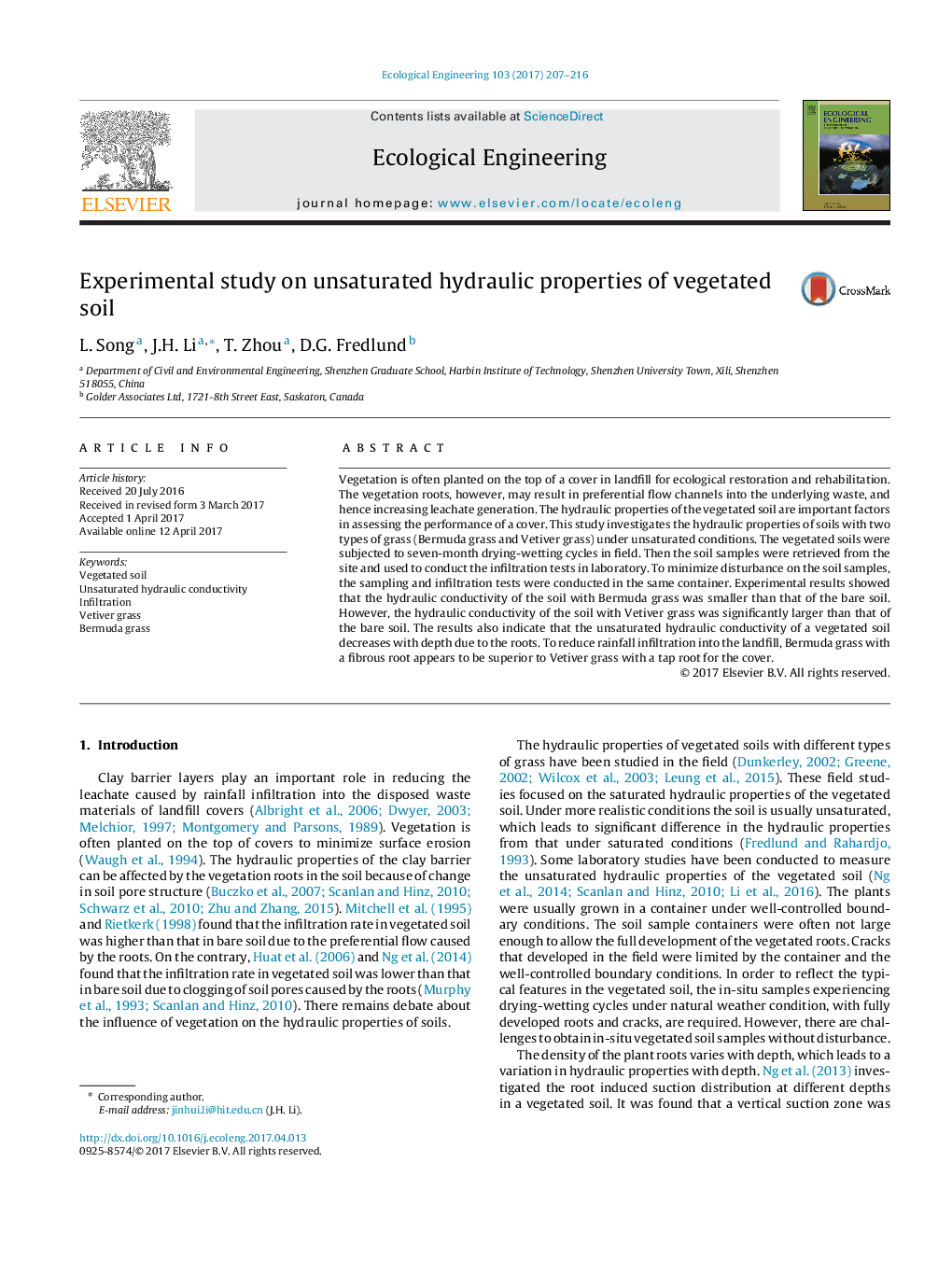| Article ID | Journal | Published Year | Pages | File Type |
|---|---|---|---|---|
| 5743580 | Ecological Engineering | 2017 | 10 Pages |
Vegetation is often planted on the top of a cover in landfill for ecological restoration and rehabilitation. The vegetation roots, however, may result in preferential flow channels into the underlying waste, and hence increasing leachate generation. The hydraulic properties of the vegetated soil are important factors in assessing the performance of a cover. This study investigates the hydraulic properties of soils with two types of grass (Bermuda grass and Vetiver grass) under unsaturated conditions. The vegetated soils were subjected to seven-month drying-wetting cycles in field. Then the soil samples were retrieved from the site and used to conduct the infiltration tests in laboratory. To minimize disturbance on the soil samples, the sampling and infiltration tests were conducted in the same container. Experimental results showed that the hydraulic conductivity of the soil with Bermuda grass was smaller than that of the bare soil. However, the hydraulic conductivity of the soil with Vetiver grass was significantly larger than that of the bare soil. The results also indicate that the unsaturated hydraulic conductivity of a vegetated soil decreases with depth due to the roots. To reduce rainfall infiltration into the landfill, Bermuda grass with a fibrous root appears to be superior to Vetiver grass with a tap root for the cover.
